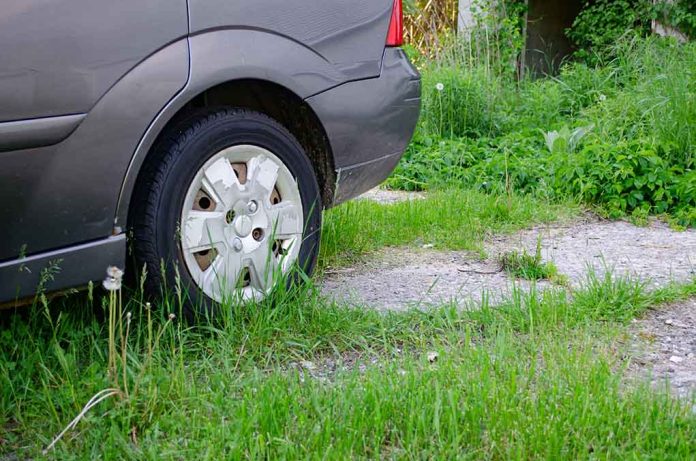
A new 15-day inoperable vehicle rule sparks debate on personal liberty and property rights.
At a Glance
- Gilbert, Arizona introduces a 15-day limit for inoperable vehicles on residential properties.
- New ordinance allows only one inoperable vehicle per property, excluding front yards.
- Residents can work on vehicles three times a year for up to 15 days each time.
- Critics argue the rule infringes on personal liberties and property rights.
Gilbert’s New Vehicle Ordinance Explained
The town of Gilbert, Arizona, a rapidly growing city with nearly 300,000 residents, has implemented a new ordinance aimed at combating automotive blight. The rule restricts the duration that inoperable vehicles can remain on residential properties to 15 days, with only three annual allowances. This change has ignited a debate about the balance between community aesthetics and individual property rights.
Arizona Town Is Attacking The Fundamental Right Of Car Enthusiasts To Own Inoperable Vehicles https://t.co/3mWEp7tkY5 via @jalopnik
— MrFACT (@MrFACT) September 18, 2024
Under the new regulations, residents are limited to one inoperable vehicle on their property, which must be kept out of public view and cannot be parked in front yards. The town defines an inoperable vehicle as one incapable of being legally driven or that cannot be started or moved under its own power. This definition also extends to functioning but unregistered vehicles.
Community Impact and Enforcement
The ordinance, which went into effect in mid-July, has already been utilized by some residents to report backyard nuisances. Gilbert’s Planning Manager, Eva Cutro, has proposed changes to the ordinances after a two-month tracking period of its use, such as restrictions on parking inoperable cars in front yards and parking them in rear or side yards behind a fence. The town aims to maintain its appearance and prevent blight, which can potentially lower property values and encourage crime.
“We want to keep the restrictions but centralize them, put them in the community preservation ordinance and add language directing people to chapter 42,” Cutro said.
Enforcement of the new rule can lead to serious consequences. Violations may result in the vehicle being removed and a lien placed on the property for abatement costs. The town’s authority to take action comes into effect if the owner or responsible party does not correct the violation within 30 days.
Balancing Community Standards and Personal Rights
While the ordinance aims to maintain community standards, it has sparked concerns about personal liberties. Critics argue that the rule infringes on the rights of car enthusiasts, particularly those with race cars or project vehicles. Some have gone as far as to dub the enforcement as the “Gilbert Gestapo,” highlighting the intensity of the opposition.
It’s important to note that homeowners’ associations (HOAs) in Gilbert can set their own rules regarding inoperable vehicles, which may be stricter or more lenient than the town’s ordinance. This adds another layer of complexity to the issue, as residents must navigate both town and HOA regulations.
Public Response and Future Considerations
The Gilbert Town Council is set to consider adjustments to the code regarding inoperable and abandoned vehicles. Citizens have the opportunity to voice their opinions on the proposed changes to the Land Development Code and Community Preservation Ordinance at an upcoming council meeting. This public input will be crucial in shaping the final form of the ordinance and ensuring it reflects the community’s values.
As Gilbert continues to grow and evolve, the debate surrounding this ordinance underscores the ongoing challenge of balancing community aesthetics with individual rights. The town’s approach to this issue may set a precedent for how other rapidly expanding communities address similar concerns in the future.
Sources:
- Town of Gilbert to adjust rules on inoperable vehicles
- Arizona Town Cracks Down on Project Cars With Single ‘Inoperable’ Vehicle Limit
- Arizona Town Is Attacking The Fundamental Right Of Car Enthusiasts To Own Inoperable Vehicles
- FAQ – Municipal Code & Land Development Code
- New law limits number of vehicles you can keep on your property – drivers can use three ‘get-out-of-jail-free cards’
- ‘Inoperable’ cars could be removed from drivers’ own backyards under new law as officials stamp out fence loophole






















